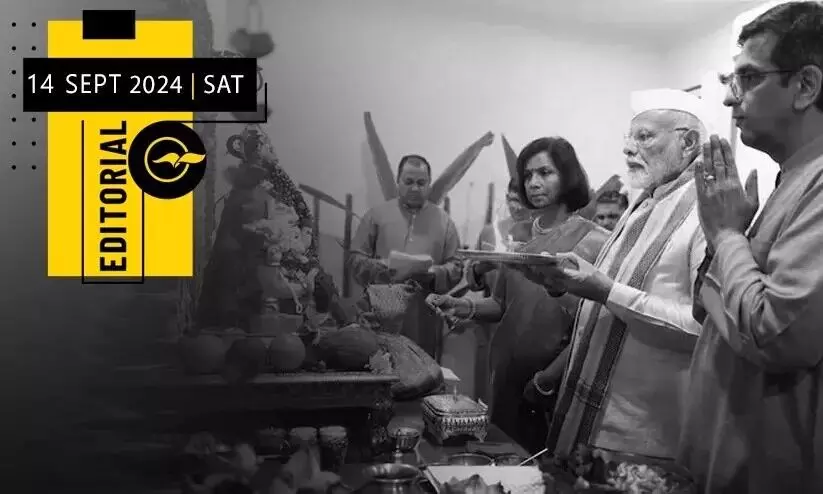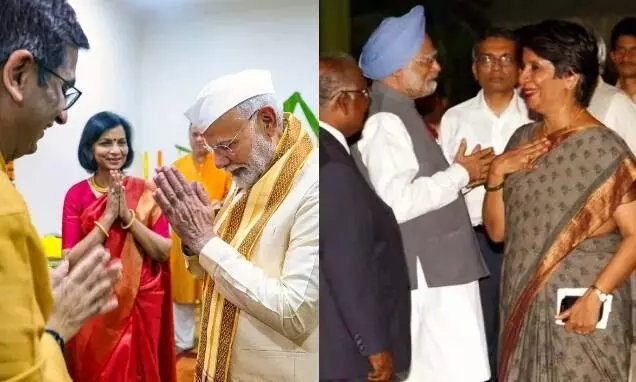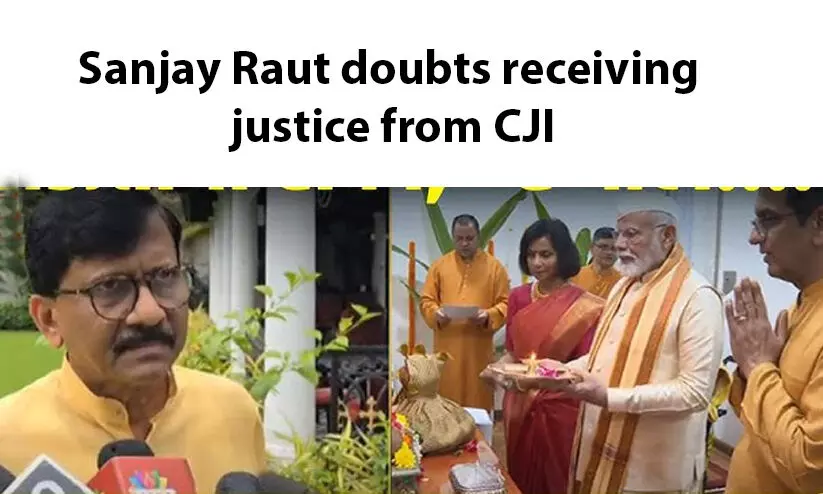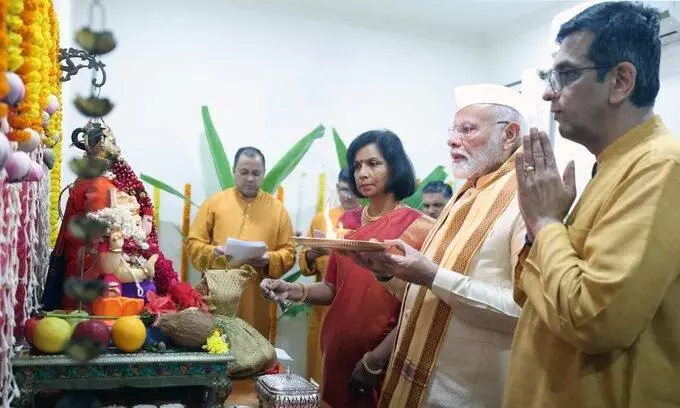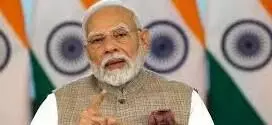
Do not cast doubt on the impartiality of the judiciary
text_fieldsA private Ganesh festival ceremony, unprecedented in the country, was held in the capital city the other day. The one who participated at Supreme Court Chief Justice DY Chandrachud’s residence as the chief guest for the Ganesh puja was none other than Prime Minister Narendra Modi, who enthusiastically shared pictures of the puja on social media. There is nothing unusual in a Ganesh devotee inviting another devotee to perform the puja at his home. Since freedom of belief is everyone’s right, it need not be seen as something amiss. However, the impropriety lies in the heads of the executive and judiciary of a secular country joining together in a religious ceremony and publicising it.
It should not be forgotten that this is a time when everything is analysed only through the lens of religion. It is also noteworthy that Narendra Modi, who attended the puja as a guest and publicised it, is known for having set an inimitable example and a new precedent in politicising religion. Chief Justice Chandrachud is not ignorant of all this. Therefore, it cannot be considered that such a platform was created innocuously. The private ceremony at the Chief Justice's house also became a green light for all the wrong things that the politically astute Prime Minister has done, is doing, and is going to do using the tool of religion. Senior Supreme Court lawyer and constitutional expert Indira Jaising has strongly reacted, stating that she has lost faith in the impartiality of the Chief Justice, who has compromised the separation of powers between the executive and the judiciary. This comment highlights the seriousness of the unhealthy trend that it represents.
It can be recalled that more than 30 retired judges of the Supreme Court and various High Courts participated in a meeting convened the other day by the legal cell of the Vishwa Hindu Parishad, which has been infamously involved in various incidents of communal violence in the country, including the demolition of the Babri Masjid, and is accused of inciting communal riots and mob lynchings. The meeting was attended by the Union Law Minister, and the topics of discussion included the Gyanvapi and Mathura Masjid-Mandir disputes, the Waqf Bill, religious conversions, and the handover of government-controlled temples to believers. According to the minister and VHP leaders, the meeting focused on the legal aspects and the stances to be adopted on all these issues. It was when the secular community was already shocked by the links between former judges and the Sangh Parivar that this new incident created a double whammy.
All this is becoming the new normal in the new India. The country has witnessed a former Chief Justice of the Supreme Court, who gave the controversial verdict in the Babri Masjid case, being made a Rajya Sabha member, and another judge from the same case occupying the Raj Bhavan. Just before the last general elections, a Calcutta High Court judge resigned and joined the ruling party, singing its praises. What message does all this send to the people of a secular country? Inviting the Prime Minister to participate in the puja conducted by the Chief Justice of the Supreme Court does not send out a healthy message by any standards. The judiciary is described as the guardian angel of the Constitution. Therefore, it is not customary for High Court and Supreme Court judges to directly or indirectly participate in political and religious functions. It is totally unheard of for the Prime Minister to be invited as a guest, even by those who personally maintain their faith and conduct religious rituals and celebrations.
It can also be recalled that the Central government is the largest client in the Supreme Court. Numerous litigations surrounding the Gyanvapi and Mathura mosques, Operation Lotus cases involving defections in state assemblies, and those concerning Centre-state relations are pending before the Supreme Court, in which the Central government is a party. When a meeting takes place between the Prime Minister, who leads that government, and the Chief Justice, who has to issue judgments on these cases, there is a worrying conflict of interest. That is why senior lawyers, among others, have pointed out that the actions of the Chief Justice challenge the impartiality of the judiciary. When fascism is running amok in all spheres, trampling on equality, secularism, and peace, it is the judiciary in which common people and vulnerable minority communities repose their last hope. If that too is shrouded in doubt, it will only accentuate concerns about the future.






















